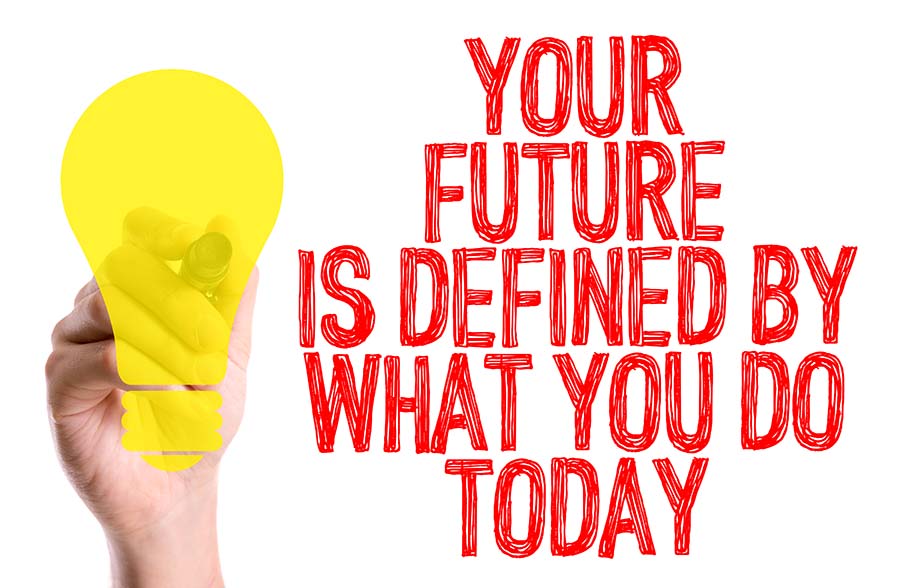The Danger of Being a Stranger to Yourself
Imagine: a neuroscientist scans your brain while you think about yourself. A very specific area lights up—what researchers call the “self centre.” Then, you're asked to think about a stranger. As expected, a completely different region activates—the “stranger centre.”
But now, the fascinating part: you're asked to think about yourself ten years in the future.
 For some people, thinking about their future-self lights up the self centre. Their brain treats that future version as them. But for others, it lights up the stranger centre. Their brain processes the future self the same way it processes someone they don’t know!
For some people, thinking about their future-self lights up the self centre. Their brain treats that future version as them. But for others, it lights up the stranger centre. Their brain processes the future self the same way it processes someone they don’t know!
And here’s the kicker: studies show that people whose future selves light up the stranger centre tend to have lower willpower. They’re more impulsive, less likely to delay gratification, and more prone to unhealthy behaviors. In contrast, people whose brains see their future self as “self” are more likely to make wise, long-term decisions that support health, financial stability, and personal growth. (Hershfield et al., 2011)
This isn’t just a quirky brain trick—it has real-world consequences.
When you feel connected to your future self, you naturally protect and invest in them. You’re more likely to skip the extra cookie, save that money, or get the workout in. Not because you're forcing yourself—but because you care about the well-being of someone who feels real.
But if that future you feels like a stranger? It’s much harder to make sacrifices. You might know saving or stretching or sacrificing is the right move, but your brain treats it as someone else’s problem.
Here’s something equally important: this connection also reduces stress.
Stress often arises from inner conflict—the battle between what you want now and what you know is better in the long term. When your future self feels distant or disconnected, every healthy decision feels like a chore. However, when your future self feels like you, you experience less decision fatigue. You gain clarity and feel calm because your life is moving in a direction you care about.
This is where mindfulness comes in.
Mindfulness is often described as present-moment awareness. But that doesn’t mean it’s only about the now. One of the greatest gifts of mindfulness is that it helps us see clearly—and that includes seeing how today’s actions ripple into the future.
When you slow down and create space between stimulus and response—whether through breath, body awareness, or meditation—you’re more likely to pause before acting. In that pause, you gain access to the big picture. You might ask: Will this action serve the person I’m becoming?
Will this action serve the person I’m becoming?
As well, mindfulness practices calm your nervous system. They pull you out of the fear-driven, short-term survival mode and into a grounded state where wise decisions become more natural.
If your brain currently treats your future self like a stranger, don’t worry. This relationship is trainable. Here are a few simple practices to try:
- Visualize your future self. Imagine them in vivid detail. Where do they live? How do they move? What brings them joy? This clarity rewires your brain to see them as real.
- Mindfully ask future-facing questions. What choice today will earn the gratitude of my future self? How can I make this moment easier for them?
- Practice compassion across time. Just as you might care for a friend, extend that same empathy to the version of you who will live with the consequences of today’s choices.
 Your future self isn’t some distant stranger—they’re you, shaped by the choices you make today. The more you see them, feel them, and care about them, the more natural it becomes to act in their best interest.
Your future self isn’t some distant stranger—they’re you, shaped by the choices you make today. The more you see them, feel them, and care about them, the more natural it becomes to act in their best interest.
And when that alignment happens—between who you are now and who you are becoming—you’ll find more ease, more willpower, and more peace.
So slow down. Breathe. Picture the version of you waiting just ahead.
They’re counting on you—and they’re closer than you think.
